Polls schedule is not a cut-off point for dialogue

The polls fixture unveiled by the Election Commission (EC) on Wednesday—setting a January 7, 2024 date for the 12th parliamentary election—has triggered a number of predictable reactions. Within hours of the announcement, scores of vehicles were vandalised and/or torched, including three compartments of a train. Citizens were seen scurrying off to the safety of their homes. BNP and like-minded parties rejected the fixture, announcing fresh protest programmes. The EC, still suffering from the proverbial ostrich syndrome, recommitted itself to the goal of a fair election while hoping that all the unresolved issues would somehow disappear. Equally banally, ruling party activists brought out celebratory processions followed by khichuri treats, as if they were just handed tickets to the front-row seats of a Taylor Swift concert.
If election preseason had a face, it would be radiating with myriad emotions at the moment, with fear, anger and jubilance all on equal display. Or, if you're into sports, think of this as the beginning of a semi-final match running up to one decisive, live-or-die final game. The general secretary of Awami League is certainly thinking in those terms, having won, in his own words, the quarter-final played on October 28, when the BNP held a rally demanding the resignation of the government only to see about 10,000 of its leaders and activists taken off the streets through arrests, cases, or jail terms.
For those scurrying off to safety, of whom I was one, the polling date announcement certainly came with a sense of foreboding. It felt like pouring gasoline on a smouldering fire, and that can only mean more violence and unrest down the road, claiming not just lives but also livelihoods of ordinary people. It also pushed any chance of political reconciliations through dialogue further away. Obaidul Quader has all but confirmed it when he said there was no time for dialogue anymore. Ever the lover of metaphors, he alluded to a train that has left the station, "What can we do if they [BNP] do not get on the train? The electoral train waits for no one. When the train leaves, it does not and will not stop [for anyone]." The foreign minister went a step further, warning that the government cannot be deterred by threats of US sanctions, and that anyone trying to obstruct the election will be "punished."
Nothing is set in stone—neither the polls schedule, nor electoral conventions, nor even the constitution. What matters more, and what the constitution also advocates, is that people are able to vote in a free, fair and credible election. This is where the ultimate test lies.
As things stand, it is difficult to ignore the stark parallel between the situation now and what happened in the lead-up to the 2014 election. The political environment then was quite as explosive as it is now. The polls schedule then was also announced amid a nationwide blockade by BNP, which it duly rejected. There was widespread violence around that time, as well as heavy government crackdown on the opposition. And international mediation attempts fell by the wayside. Finally, the election ended with almost all major opposition parties boycotting it, 21 people killed on election day, and 153 Awami League candidates or allies elected unopposed, giving the party a landslide victory.
Is this how the 2024 election is also going to play out?
The Awami League seems to have learnt from the distasteful aftertaste of 2014, but it's not the lesson you'd want it to learn. Given the notoriety that uncontested elections bring, the ruling party is hoping that there will be enough bodies on the opposition aisle to give its expected win a veneer of legitimacy. There are two keywords here: participatory and competitive. Awami League seems to want an election that will be participatory, but not competitive enough to overturn its plan. And all this will be done in the name of "constitutional obligation" and "continuation of the democratic process," as it was in 2014, and again in 2018, which too was boycotted amid a vote-rigging bonanza.
For a party that has survived overseeing the bloodiest election in Bangladesh's history—and widespread condemnations from major international players like the US, UK, the European Union, and the United Nations—it may suit Awami League to be confident in the face of renewed pressure and potential sanctions from the US, especially after the purported backing of our closest neighbour. But given how bad the situation has turned, how fragile the economy is, and how desperate citizens have become for relief from the unending tensions, it suits all parties involved to consider less confrontational options.
The fact is, dialogue is still our best way out of another bloody election and shamefully low voter turnouts. The election schedule, which ideally should allow for time to prepare for the polls, doesn't mark a cut-off point for political reconciliations. Saying so is naive at best, and dangerous at worst. When the stakes are as high as they are presently, an election timetable is merely a formality. That the EC still chose to go ahead with it amid zero signs of a consensus over the election-time administration issue reflects the wishes of the incumbent government. But even then, the CEC, in his speech to the nation, has stressed the importance of major political parties resolving their differences.
The apparent lack of effect of some of our international allies trying to bring Awami League and BNP together for dialogue has been frustrating, if not totally surprising. Perhaps it's time we realised that we must look inwards for a solution. BNP feels that the responsibility to create an environment for dialogue lies with the Awami League. We cannot help but agree. It's a historic responsibility/burden that has accrued over 10 years of violent and discredited elections. But both parties must also be willing to compromise on their stances to the degree possible, even if it means going off the books for a mutually agreeable solution.
Nothing is set in stone—neither the polls schedule, nor electoral conventions, nor even the constitution. What matters more, and what the constitution also advocates, is that people are able to vote in a free, fair and credible election. This is where the ultimate test lies. And in the coming days, Awami League—as the party in power—will be judged based on its performance in this regard.
Badiuzzaman Bay is assistant editor at The Daily Star.
Views expressed in this article are the author's own.
Follow The Daily Star Opinion on Facebook for the latest opinions, commentaries and analyses by experts and professionals. To contribute your article or letter to The Daily Star Opinion, see our guidelines for submission.

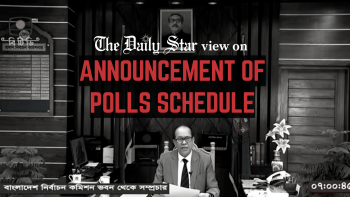
 For all latest news, follow The Daily Star's Google News channel.
For all latest news, follow The Daily Star's Google News channel. 
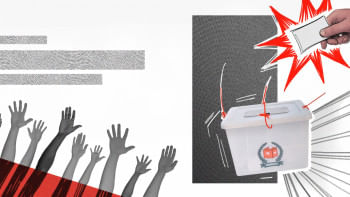

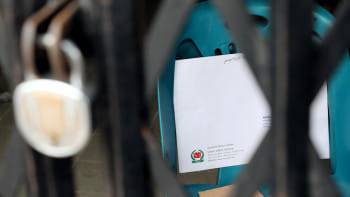
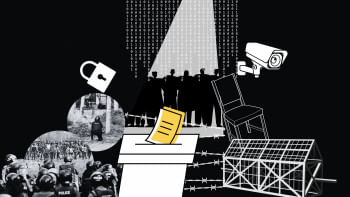



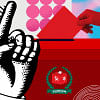

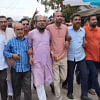


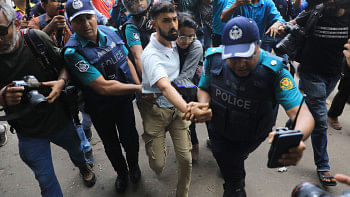
Comments